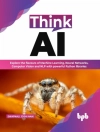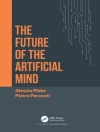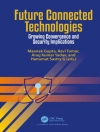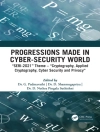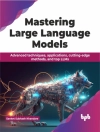Formal specification languages, object-oriented methods, CASE tools, component-based software production, agent-oriented, aspect-oriented … During the last two decades many techniques have been proposed from both research and industry in order to generate a correct software product from a higher-level system specification. Nevertheless, the many failures in achieving this goal have resulted in scepticism when facing any new proposal that offers a ‘press the button, get all the code’ strategy. And now the hype around OMG’s MDA has given a new push to these strategies.
Oscar Pastor and Juan Carlos Molina combine a sound theoretical approach based on more than 10 years’ research with industrial strength and practical software development experience. They present a software process based on model transformation technology, thus making the statement ‘the model is the code’ – instead of the common ‘the code is the model’ – finally come true. They clearly explain which conceptual primitives should be present in a system specification, how to use UML to properly represent this subset of basic conceptual constructs, how to identify just those diagrams and modeling constructs that are actually required to create a meaningful conceptual schema, and, finally, how to accomplish the transformation process between the problem space and the solution space.
Their approach is fully supported by commercially available tools, and the subsequent software production process is dramatically more efficient than today’s conventional software development processes, saving many man-days of work. For software developers and architects, project managers, and people responsible for quality assurance, this book introduces all the relevant information required to understand and put MDA into industrial practice.
Tabla de materias
The OO-Method and Software Production from Models.- Let’s Get Philosophical.- The Purpose of this Work.- The Need for New Development Environments.- Object-Oriented Modelling as the Starting Point.- The OO-Method.- Conceptual Modelling: About the Problem Space.- Conceptual Modelling Primitives.- Object Model.- Dynamic Model.- Functional Model.- Presentation Model.- Conceptual Modelling of Legacy Systems.- Conceptual Model Validation.- Conceptual Model Compilation: From the Problem Space to the Solution Space.- Transforming Models into Applications.- Requirements for the Compilation of Conceptual Models.- Application Execution Strategy.- Application Architecture.- Transformation Strategy.- Building a Conceptual Model Compiler.- Issues with Other Approaches.- Analogies Between OO-Method and MDA.- The OO-Method Development Process.- OO-Method Implementations.- Conclusions.- Conclusions.
Sobre el autor
Oscar Pastor is Professor for object-oriented development methods at the Valencia University of Technology, Spain. He has taught software engineering for more than 10 years, his research during that time focusing on object-oriented conceptual modeling, requirements engineering, Web development, and model-based software production. He has headed prestigious scientific events like the World-Wide Web Conference in 2007 (Web Engineering Track) and the International Conference on Conceptual Modeling in 2005. In addition, he is the brain behind the Oliva Nova Model Execution, an advanced MDA-based set of tools that produces a final software product starting from a conceptual schema where the system requirements are captured.
Juan Carlos Molina is Research and Development Manager for CARE Technologies S.A., the company that develops the Oliva Nova Model Execution set of tools which fully support the MDA-based, conceptual model-centric software development approach described in this book.



